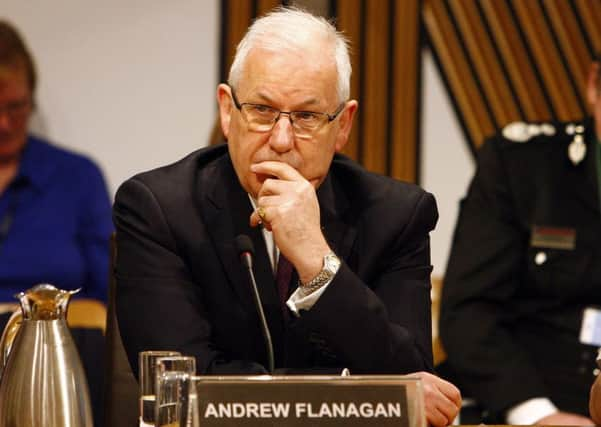Chris Marshall: Whistleblowers and the internet strangers to justice


Last week, a report by the Scottish Courts and Tribunals Service (SCTS) called for more digital evidence to be taken from witnesses to prevent them having to be appear in person.
It is hoped the move would help speed up Scotland’s summary justice system, which handles around 140,000 cases a year.
Advertisement
Hide AdAdvertisement
Hide AdWhile Scotland’s courts are now used to dealing with online child abuse, cybercrime and other internet-related offences, for those working in the system it’s almost as if the advent of the internet never happened.
One excruciating section of the SCTS report recounts how digital crime scene photographs are printed off in “bulky photo books” before being passed to prosecutors who then scan them on to a central IT server.
If the images are to be used as evidence during a trial, a court official must point a camera at the pages of the photo book to project them on to a screen for the court to see.
It all seems a bit 1990s for a justice system dealing with the demands of the 21st century, where digital technologies are changing at an unprecedented pace.
Yet the SCTS report and another document published by Police Scotland suggests things are about to change.
A document made public last week by Scotland’s national police force hinted at a future where crimes can be reported via social media. Under a new “multi-modal contact platform”, the force plans to exploit “emerging contact methods” including Facebook and Twitter.
But while the public’s means of contacting Police Scotland look set to increase, it seems the force’s own officers are struggling to communicate their concerns.
During a session of the Scottish Parliament’s justice committee yesterday, MSPs were told there have been 133 referrals to the force’s Integrity Matters initiative since it was launched in March last year. Essentially a whistleblower’s hotline, the service allows police officers and staff to raise issues on a confidential basis.
Advertisement
Hide AdAdvertisement
Hide AdHowever, Andrew Flanagan, chair of the Scottish Police Authority, suggested that 130 referrals from a workforce of more than 20,000 was not good enough.
Last year the Interception of Communications Commissioner’s Office (Iocco) found senior figures in Police Scotland had contravened data guidelines when they attempted to identify officers leaking information from the Emma Caldwell murder investigation.
The incident has led to an independent review of the force’s counter corruption unit (CCU), currently being carried out by HM Inspectorate of Constabulary in Scotland (HMICS).
Mr Flanagan told MSPs yesterday that officers often had no route with which to complain about the CCU or the professional standard department, other than to report to their union or Crimestoppers, when there is criminality involved.
To his credit, Phil Gormley, Police Scotland’s new chief constable, is now carrying out his own review of whistleblowing within the national force. But much like the justice system is behind the curve on introducing technology, it seems Police Scotland is struggling to implement a robust whistleblowing policy such as those used elsewhere in the public sector.